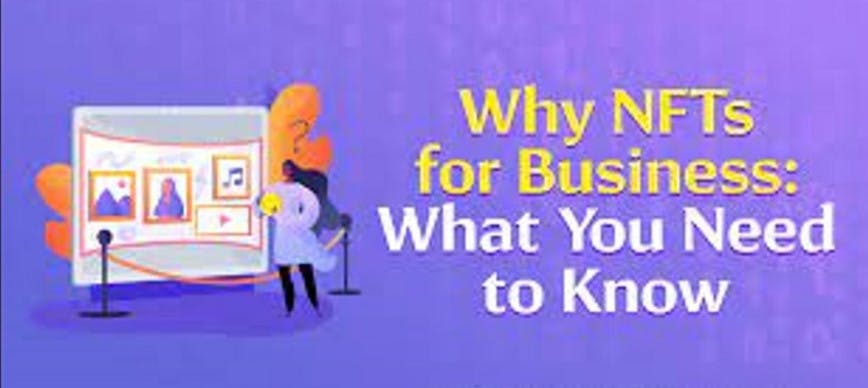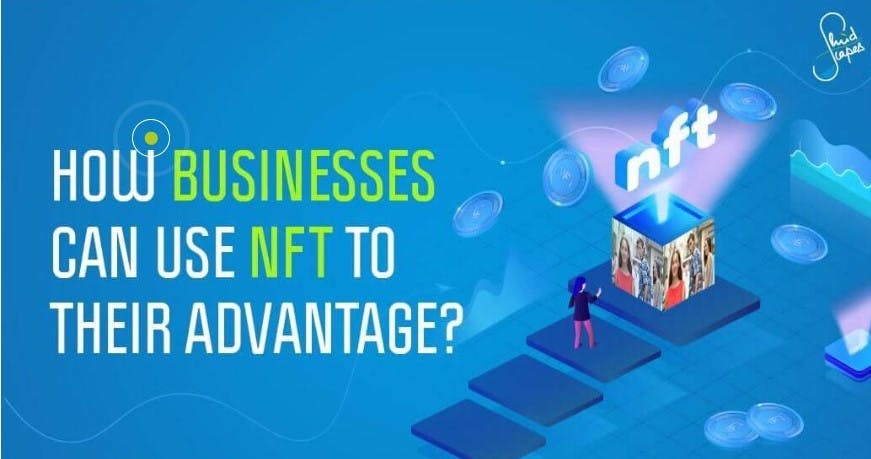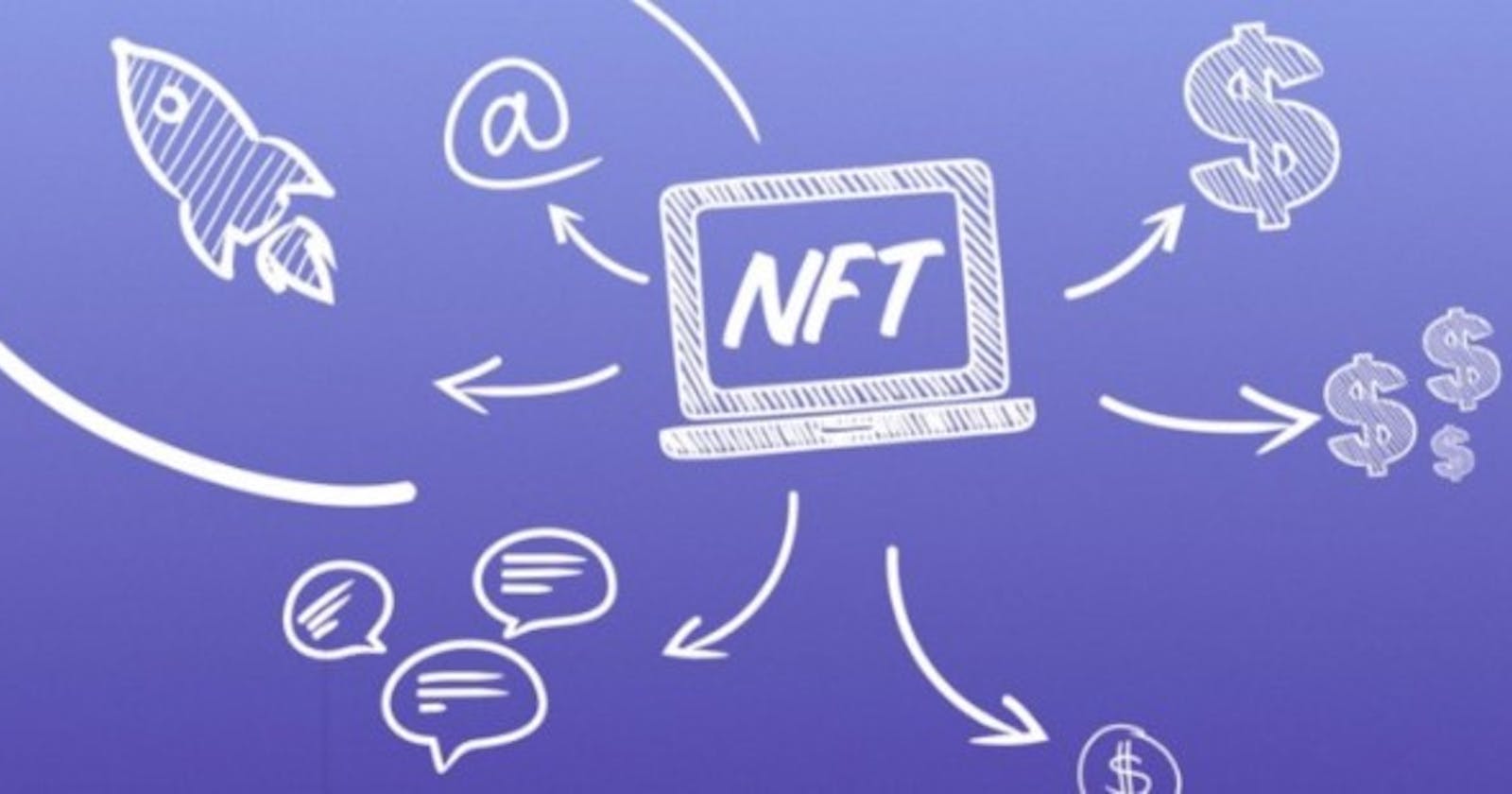Undoubtedly, Non-Fungible Tokens (NFTs) have been making waves across all industries. What started as a $4 return on investment from the first NFT token minted by Kevin McCoy is now a $3 billion industry and is expected to grow to $13.7 billion in 2027. Unsurprisingly, many entrepreneurs want a piece of this blockchain miracle and have started utilizing its potential to maximize their businesses and push their brands across frontiers.
Despite the boom in blockchain activities and NFT trading, many people still don’t understand how Non-Fungible Tokens work. Also, there are misconceptions that NFTs are restricted to digital artists, web3 developers, and maybe those in the entertainment and sports industries. This makes it difficult for entrepreneurs in other sectors to develop creative ways of using NFTs to their brand’s advantage.
This document will explain what NFTs are and how they entirely work. We will see how NFTs have cut across other industries and examples of entrepreneurs who can utilize this web3 technology to build better brands.
What is an NFT?
 Source: Cryptoslate
Source: Cryptoslate
To understand NFTs, defining what "fungible" means is pertinent. An Investopedia article says "fungibility" is the capacity of an asset or goods to be exchanged with other individual assets or goods of the same type. Fungible assets simplify the exchange and trade (or trade by barter system). Therefore, fungibility implies equality in value between the assets. For instance, you are exchanging a $100 bill for two $50 bills.
A Non-Fungible Token (NFT) is a collectible digital property or asset that holds value in cryptocurrency and has a form of art or culture. In simple terms, it is a digital token that contains your art or creative works in a blockchain system. The NFT is created from the digital objects they represent, both non-tangible or tangible items, like videos, JPGs, GIFs, music, video game skins, etc. This means that Non-Fungible Tokens are like physical collector items but in a digital way. The purchaser will get a digital version of the item and its exclusive ownership rights.
NFTs are unique tokens living on a blockchain representing other data like images or videos. They are cryptographic objects on the blockchain with special identification codes and metadata that differentiates them from others. Therefore, NFTs are best described as real-world digital artifacts like artworks or real estate properties.
You may wonder why fungibility applies to cryptocurrencies (which have monetary values) but does not apply to NFTs despite them being on a similar blockchain. You should know that creators developed NFTs with the idea of uniqueness in mind. They are artworks, and one artwork cannot be exchanged for another because it possesses a digital signature or represents a unique property that makes it non-equivalent to another.
Why are NFTs important to your business?
 source: Social Media Examiner
source: Social Media Examiner
Entrepreneurs can now tap into the NFT culture and have a booming impact on their businesses. Technological growth makes Non-Fungible Tokens (NFTs) important to your business. With NFTs becoming more mainstream, you should begin to care about their impact because they are not fading out anytime soon.
According to Gary Bracey, the co-founder of Terra Virtua, the world's first fully immersive digital collectibles platform, "NFTs now push for significant changes in the entertainment, music, creative, digital, and gaming industries. Entrepreneurs connected to these industries will likely be aware of NFTs because they are essential for brand development." He believes it is worth keeping informed and having a sense of where they are headed because NFTs attract many businesses and consumers.
If you are looking to push your brand through technology, here is why NFTs are essential for you:
Better Branding: Entrepreneurs can improve their brand appearances as it applies to the ever-growing web3 communities. Potential users see your products in a brand new way when you adopt web3 and NFT features. For instance, Taco Bell rendered 25 taco-themed GIFs and images in the market and sold out all the tokens within 30 minutes. The proceeds of the sale went to a Live Más Scholarship. This was a web3 branded pilot run by Taco Bell, and the results improved the company's brand strength.
Encourages Interactions: One common feature with NFTs is community engagement through Discord channels and social media. Brands and businesses can use NFTs to increase community engagement by hosting NFT design hackathons, sponsoring NFT giveaways, or allowing customers to exchange NFTs for products and services. Brands can also create their own NFT collections with some intrinsic value that can be exchanged.
Digital Business Dimension: Brands can now introduce a digital dimension to their products and create unique ways for their customers to engage with the brand through NFTs.
Different ways to use NFTs to your advantage
 Source: Fluidscapes
Source: Fluidscapes
Now, it is easier to benefit from NFTs, and you can boost your brand with these ideas if they are appropriately utilized. Here are the following ways of taking the NFT advantage:
Auctions: Businesses and brands can now auction their digital assets quickly to bidders worldwide. Whether a small brand or a large company, NFT buyers can now be shareholders without all the necessary official formalities. For instance, authors now auction the digital version of their works as collectibles and make better profits.
Retaining Rights: Sales and transactions on NFTs allows the creator to retain the rights over the item. This means royalties still return to the creator after the sales. For example, Samsung could sell the NFT for the renders behind their latest products but still use them on TV.
Smart Contracts: Blockchain technology enables smart contracts, where the terms of an agreement between the buyer and seller are self-executory. Now, transactions become more accessible and faster by bypassing the traditional selling models. According to John Wingate, the goal is to use decentralized ledgers and the power of social reach to remove the need for conventional economic models.
Closer Connection: The entire transaction on NFTs establishes better links between the parties because intermediaries are removed. This builds better chances of creating lasting connections that benefit your brand.
Utility: Brands may foster a more intimate and fruitful relationship with their customers by emphasizing the utility of NFTs. Whether that NFT later serves as a key to accessing only specific material, a ticket to only certain events, or a representation of actual items, NFTs enable brands to interact with their customers in an ongoing, genuine way.
Conclusion
Non-Fungible Tokens have shown that they are here to stay. Regardless of their potential, entrepreneurs must be careful before venturing into NFTs. Digital content offers brands great value, and businesses can leverage NFTs to discover new opportunities, better audiences, connect with their customers, and grow their businesses.
